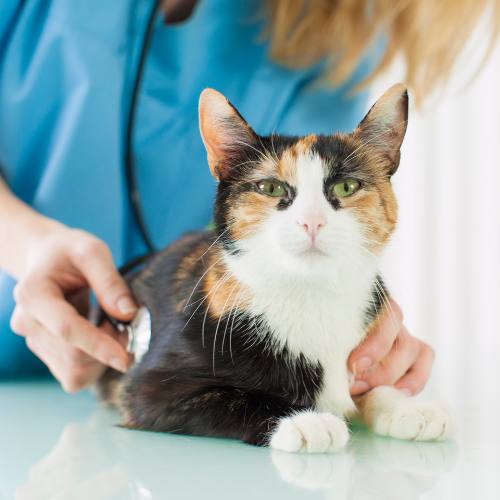Pet Complete Wellness Exam
At East Side Animal Hospital, we believe that regular wellness exams are essential for keeping your pet healthy and happy.
Pet Complete Wellness Exam in Owensboro, KY
Our pet complete wellness exam is a comprehensive evaluation of your pet’s overall health, helping us detect and address any potential issues early on.

Importance of a Pet Complete Wellness Exam
Regular wellness exams are important for several reasons:
- Early Detection of Health Issues: Annual exams can help detect health issues early on when they are more likely to be managed and resolved with less cost, less complication, and a higher success rate.
- Preventative Care: Wellness exams also allow us to provide preventative care, such as vaccinations and parasite prevention, to keep your pet healthy.
- Monitoring Your Pet’s Health: Regular exams allow us to monitor your pet’s health over time and detect any changes that may require attention.
What to Expect During a Pet Complete Wellness Exam
During a pet complete wellness exam, our veterinarian will conduct a thorough evaluation of your pet’s overall health. This may include:
- Physical Examination: A physical examination to check your pet’s weight, heart rate, temperature, and overall body condition.
- Vaccinations: Updating vaccinations to protect your pet against preventable diseases.
- Parasite Prevention: Providing parasite prevention to protect your pet against fleas, ticks, and intestinal parasites.
- Blood Tests: Recommended blood tests to check for any underlying health issues.
- Dental Examination: A dental examination to check for signs of dental disease.
- Nutritional Counseling: Providing advice on the best diet for your pet’s age, breed, and health status.
When to Schedule a Pet Complete Wellness Exam
We recommend scheduling a pet complete wellness exam at least once a year for adult pets. Puppies, kittens, and senior pets may require more frequent exams.
Schedule a Pet Complete Wellness Exam Today
Don’t wait until your pet is sick to schedule a wellness exam. Regular exams are the key to keeping your pet healthy and happy for years to come. Contact East Side Animal Hospital in Owensboro, KY, today to schedule a pet complete wellness exam for your furry friend.
